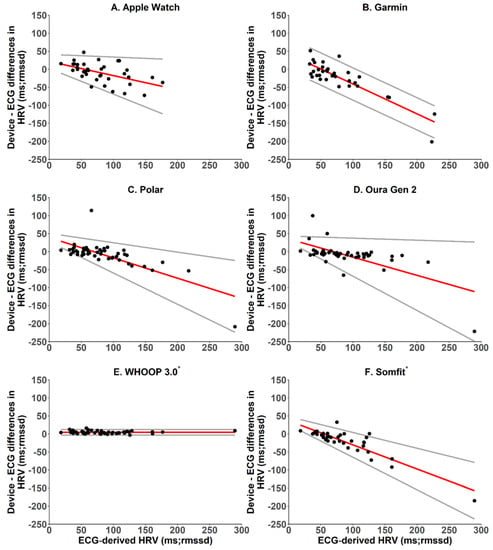Tom_hampton wrote:
I don't think you understand what hrv is. Garmin has no algorithm for measuring hrv. That's very well defined, as the root mean square of successive differences (r-r intervals). You simply take each rr square them and sum all up and take the square root. Nothing magic.
The algorithm and sensor technology is all about finding the pulse wave, and finding the "peak" in the pulse wave (measured as change in reflectance of a specific wavelength of light). The pulse wave is much more "rounded" than the electrical pulses measured by chest straps and ecg. As such, peak detection is a bit more tricky (and susceptible to error). In addition, they need methods for filtering out normal variation from watch movement, etc. In some cases they may have to discard invalid samples, and again the "trick" comes in deciding what to discard, and what to replace it with (nothing? Average of prev and next sample? Etc).
All of this is about minimizing the effects of erroneous measurements. Electrical systems suffer almost none of these issues, as they are much much smaller in magnitude and impact. As a result, bluetooth straps to phone apps can just use the rmssd formula above. Most of these systems don't even bother to handle dropped samples. They just report if it apps to any significant measure and say "try again".
I'll take your word for it; I'm sure Garmin does have some sensor-specific things they've done like you mentioned to try and get the optical sensor to more closely match an electric signal.
But whatever it is, it's working extremely well for me thus far. I find it hard to believe it's all just garbage and noise like you and others claim, as I havent had a single day yet where it's gone opposite of what my training load and sensation of readiness has been (which is amazing to me, as I've said several times.) If it's work so well for me with the current-gen device, it's hard for me to believe it's giving useless data for others if they were using a similar device.
Even this week, which is my pullback week, eveyr single overnight average has increased from 70ms (low for me) all the way up to 104ms today (normal). The 7-day average is still slightly low, but will be essentially back to normal by the end of the week. I now trust my own data enough to be actionable, which is crucial as well - my HRV was still in the low 80s last night, so even though I had the time, I didn't do my typical doubled swim then bike or run, and just did the single workout, but I'll go back to doubles instead today with the normal HRV. (I did feel more fatigued yesterday than today particularly in the AM, but by the end of the day I felt like I should be rolling!)
My last 3 months of data haven't had a single glitched week where there was a mismatch between my training load/feel vs the HRV, meaning no weeks (I can't even note a single day really) where HRV said "you're tired, rest!" but my fatigue said "nope feel great!" or vice versa. It's remarkable how my curves dip with the big training weeks and then come right back up to green as I decrease load.
